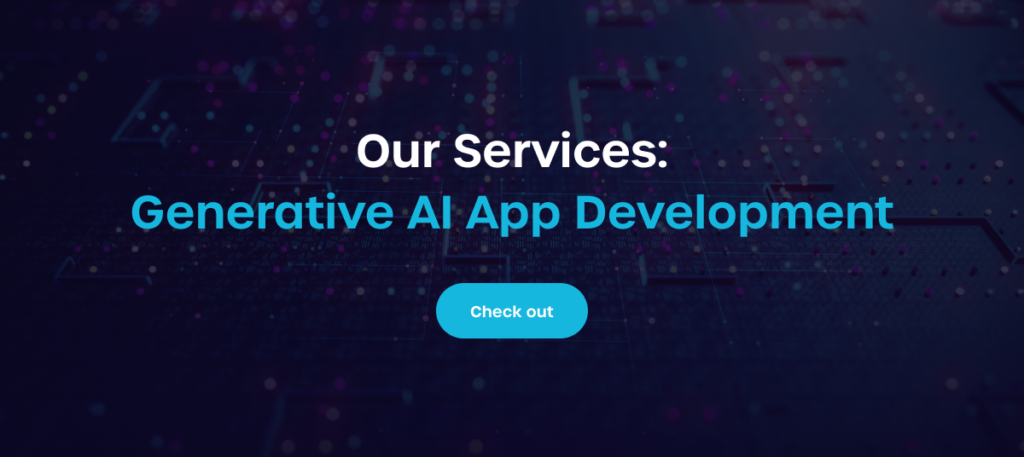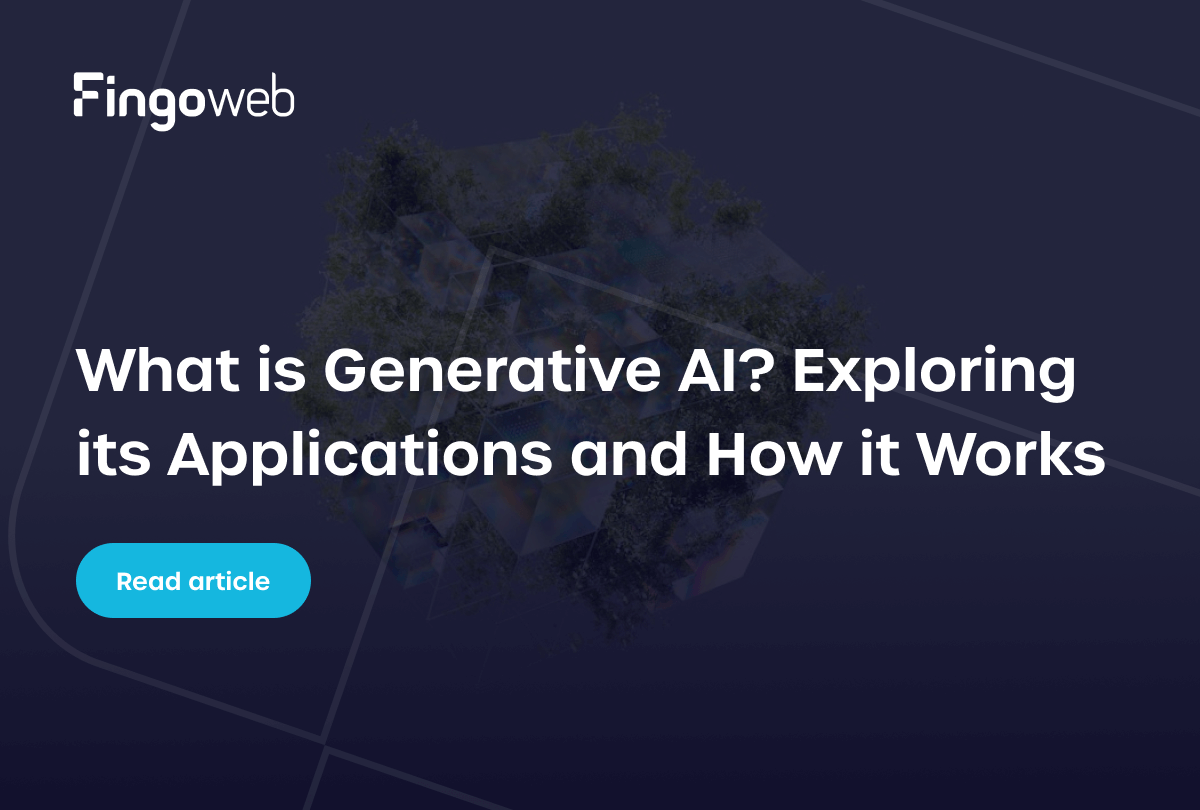On one hand, the topic of AI replacing software developers is always a hot discussion in the IT industry. On the other hand, AI in its broadest sense is also creating jobs, including for specialists, such as AI software developers (AI Engineers).
In this guide, you will learn:
- What are the roles in an AI team?
- What do AI software developers do?
- AI software developers and the challenges they face.
- What tools do AI software developers use?
- … and how to start your career in this field.
The process of developing AI-based solutions is so complex that it requires several (well-paid) experts, selected based on the specific needs of the project. A simple example: when working on a project analyzing customer churn in a bank, the team likely won’t need a Computer Vision Engineer. On the other hand, such a specialist would be essential for implementing a system that analyzes video from CCTV cameras.
The good news is that AI software developers are needed in most projects that evolve into useful products.
Roles in AI team
Before diving deeper into the tasks undertaken by AI software developers, it’s worth getting familiar with some key roles in AI development teams:
1. Machine Learning Engineer
Machine learning engineers design and develop algorithms that enable machines to learn from data. They implement models and ensure their scalability and efficiency across various applications.
2. Data Scientist
Data Scientists analyze large datasets to extract meaningful insights and build predictive models. They use statistical methods and machine learning algorithms to solve complex business problems.
3. AI Research Scientist
AI researchers conduct theoretical and experimental studies to advance AI technology. They explore new algorithms and techniques, often publishing their findings in scientific journals.
4. Natural Language Processing (NLP) Engineer
NLP engineers specialize in enabling machines to understand and generate human language. They develop applications such as chatbots, language translation systems, and speech recognition software.
5. Computer Vision Engineer
Computer vision engineers focus on enabling machines to interpret and process visual information from images or videos. They work on applications such as facial recognition, object detection, and autonomous vehicles.
6. Robotics Engineer
Robotics engineers design and build intelligent robots capable of autonomously performing tasks. They work on integrating hardware and software, sensor fusion, and real-time decision-making algorithms.
7. AI Solutions Architect
AI solution architects design and oversee the implementation of AI solutions within organizations. They ensure that AI systems align with business objectives and integrate seamlessly with existing infrastructures.
8. AI Product Manager
AI product managers oversee the development, market launch, and continuous improvement of AI products. They identify market opportunities, define the product vision, and collaborate with engineering and design teams to deliver AI solutions.
9. Ethical AI Specialist
AI ethics specialists address the ethical implications of AI implementation. They establish guidelines and best practices to ensure responsible usage, minimizing risks such as bias, misinformation, and privacy concerns.
10. Prompt Engineer
Prompt engineers specialize in crafting effective prompts and instructions that guide language models to generate desired outputs. They design prompts that ensure accurate and contextually appropriate responses, optimizing the performance of language models.

What do AI software developers do?
There are three closely related roles that are sometimes used interchangeably:
- ML Engineer – Primarily focuses on building machine learning algorithms and models, which may not necessarily be deployed as products.
- AI Engineer – Develops AI systems capable of analyzing data, learning, and performing tasks.
- Software Developer – In AI projects, they often focus on integrating AI models into software products.
AI software development is a broader role than that of an ML Engineer. Such a specialist must combine unique technical skills, problem-solving abilities, and a solid understanding of machine learning principles. Below are three key skills that every AI software developer should master:
- Data Management and Analysis – The ability to process and analyze large datasets ensures the accuracy and effectiveness of AI models, directly impacting their performance in real-world applications.
- Proficiency in Machine Learning Frameworks – Knowledge of tools such as TensorFlow, PyTorch, and scikit-learn is essential for efficiently implementing machine learning models and neural networks.
- Advanced Programming Skills – Proficiency in programming languages like Python is crucial for developing AI algorithms, managing data pipelines, and integrating AI systems into larger applications.
AI software developers – What challenges do they face?
AI software developers often encounter difficulties related to data management and processing. Ensuring high-quality data is crucial, as inaccurate information can lead to ineffective solutions. Additionally, integrating AI systems with existing infrastructure can be challenging, often requiring significant modifications to both software and hardware components.
There are also several other obstacles that need to be overcome:
- Managing computational resource demands while maintaining cost efficiency.
- Addressing ethical issues to ensure fair and transparent AI outcomes.
It is also worth noting that the AI landscape changes daily. The number of open-source models and solutions is vast. A good AI software developer should stay informed and continuously improve their skills.
Tools used by AI engineers
AI engineers rely on various tools to build and optimize intelligent systems. Knowledge of these tools is essential for working as an AI software developer. Below are just a few of them:
TensorFlow
TensorFlow is an open-source library developed by Google for machine learning and deep learning applications.
- Supports the development of neural networks
- Offers flexibility and scalability
- Provides a robust ecosystem with tools such as TensorBoard for visualization
PyTorch
PyTorch is a popular machine learning library known for its ease of use and dynamic computation graph.
- Enables rapid prototyping
- Strong community support
- Ideal for both research and production
scikit-learn
scikit-learn is a simple and efficient tool for data exploration and analysis, built on NumPy, SciPy, and matplotlib.
- Offers a wide range of algorithms
- Easy integration with other libraries
- Suitable for both beginners and experts
Jupyter Notebook
Jupyter Notebook is an open-source web application that enables interactive creation and sharing of documents containing code, visualizations, and narratives.
Hugging Face
Hugging Face is a platform and library specializing in natural language processing (NLP).
- Offers pre-trained NLP models
- Easy integration with other tools
- Strong community support and documentation
What language do AI software developers use?
Python is the primary programming language for AI-based solutions, and the previously mentioned tools like TensorFlow, PyTorch, and scikit-learn are built on Python. So, if you know Python, your development path will be much easier.
Additionally, R is popular for statistical analysis and data visualization, while C++ offers high performance, making it suitable for real-time AI systems.
AI software developer – how to start?
The scope of knowledge required to work as an AI software developer is vast (without taking anything away from non-AI developers). For this reason, salaries tend to be relatively high.
A good starting point is to create an AI-based solution using open-source models. You can easily find simple models that you can run on your personal computer.
The Scope of Knowledge for AI Software Developers
It’s worth having at least a basic understanding of the following topics:
- Fundamentals of Mathematics and Statistics – AI engineers often need a solid foundation in mathematics, especially in linear algebra, calculus, probability, and statistics. These areas form the basis of many algorithms used in artificial intelligence.
- Programming Language Proficiency – The most commonly used languages in AI are Python and R. Python is particularly popular due to its extensive libraries supporting AI, such as TensorFlow, PyTorch, scikit-learn, Keras, and pandas. Achieving an intermediate level in Python is a key step.
- Understanding Algorithms and Data Structures – A solid grasp of fundamental algorithms (sorting, searching) and data structures (lists, trees, graphs) is essential for effectively solving AI-related problems.
- Machine Learning and Deep Learning – After mastering programming basics, it’s crucial to learn machine learning algorithms, such as regression, classification, clustering, neural networks, and deep learning (Deep Learning). Online courses (e.g., Coursera, edX, Udacity) offer excellent resources to help understand these topics.
- Working with Data – AI heavily relies on analyzing and processing large datasets. It’s important to learn how to acquire, clean, and preprocess data (data wrangling) using tools like Pandas and NumPy.
- Practical Projects – Gaining experience through real-world projects is essential. Start with simple tasks like image recognition or text analysis, then move on to more complex AI applications, such as recommendation systems, autonomous vehicles, or large-scale data analysis.
- Participation in AI Communities and Competitions – Engaging in AI communities (e.g., GitHub, Stack Overflow, Reddit) and participating in competitions like Kaggle can help gain hands-on experience and strengthen your resume.
- Formal Education – Many individuals choose an academic path, pursuing a master’s or PhD in AI or related fields (e.g., computer science, mathematics). While not mandatory, it can help advance your career and increase job opportunities in research and development.
- Applying for Junior AI Engineer Positions – Once you’ve acquired the necessary knowledge, start looking for junior AI engineer job openings. Even without extensive experience, many employers offer development opportunities, and the market is currently in high demand for AI talent.
AI development trends
Looking ahead, AI software is moving towards increasing automation and more advanced applications of artificial intelligence, including so-called agent AI – AI solution capable of performing tasks.
The role of software developers will continue to evolve with the emergence of new tools and technologies, requiring continuous learning and skill improvement. As AI-based applications advance, developers will play a key role in their creation.
Industries Using Artificial Intelligence
Various industries recognize the potential of AI software developers and the impact they can have on their operations. Sectors such as healthcare, finance, and commerce are actively implementing artificial intelligence to streamline decision-making processes, enhance customer experiences, and generate new ideas. Companies across different fields are increasingly adopting AI technologies, and the demand for skilled developers is growing proportionally.
It’s worth pursuing this path
An AI software developer creates advanced systems that analyze data and learn, using tools like TensorFlow and PyTorch. Key skills include data management, programming in Python, and knowledge of machine learning algorithms. This role is highly dynamic and requires continuous skill improvement, making it an exciting career path with high salaries and strong demand in the job market.
If you are passionate about technology and want to shape the future, becoming an AI software developer could be the perfect choice for you.
AI Software Developers – FAQ
What does an AI software developer do?
An AI software developer specializes in creating applications and systems that utilize artificial intelligence and machine learning technologies. They design, develop, and implement AI-based solutions tailored to business needs, improving overall efficiency and performance.
What are the requirements for AI software developers?
To become an AI software developer, a solid foundation in mathematics is essential. Knowledge of programming languages, especially Python, is also necessary. AI developers should understand machine learning and deep learning algorithms, as well as have experience working with and processing data.
What tools should you know to become an AI software developer?
Aspiring AI software developers should be familiar with tools such as TensorFlow, PyTorch, and scikit-learn, which are widely used for building machine learning models. Knowledge of data analysis tools like Pandas and NumPy, as well as cloud platforms like AWS and Google Cloud, is also beneficial for developing and deploying AI models.








